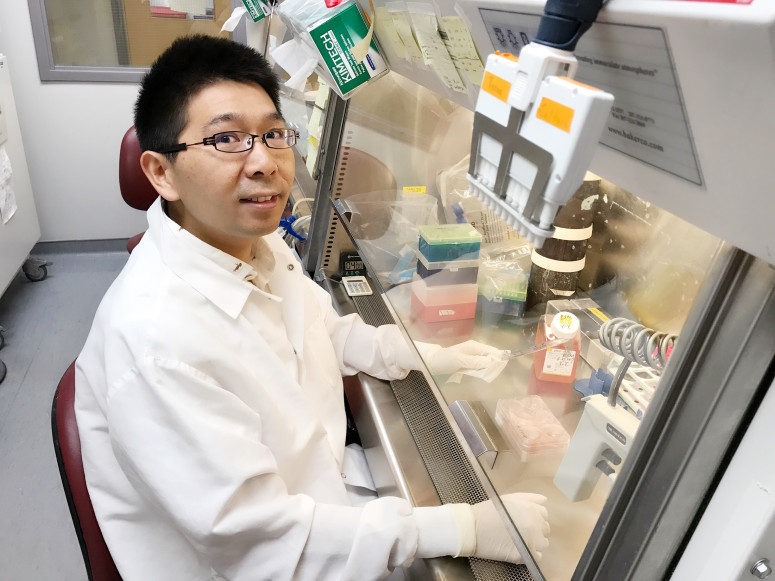01 Feb UW–Madison researchers first to 3D-print functional human brain tissue

Yuanwei Yan is a scientist in the Zhang lab at UW–Madison, where researchers have developed new printing methods to grow brain tissues for use in the study of neurodevelopmental disorders like Alzheimer’s and Parkinsin’s diseases. Photo by Xueyan Li
A team of University of Wisconsin–Madison scientists has developed the first 3D-printed brain tissue that can grow and function like typical brain tissue.
It’s an achievement with important implications for scientists studying the brain and working on treatments for a broad range of neurological and neurodevelopmental disorders, such as Alzheimer’s and Parkinson’s diseases.
“This could be a hugely powerful model to help us understand how brain cells and parts of the brain communicate in humans,” says Su-Chun Zhang, professor of neuroscience and neurology at UW–Madison’s Waisman Center. “It could change the way we look at stem cell biology, neuroscience and the pathogenesis of many neurological and psychiatric disorders.”
Printing methods have limited the success of previous attempts to print brain tissue, according to Zhang and Yuanwei Yan, a scientist in Zhang’s lab. The group behind the new 3D-printing process described their method today in the journal Cell Stem Cell.



